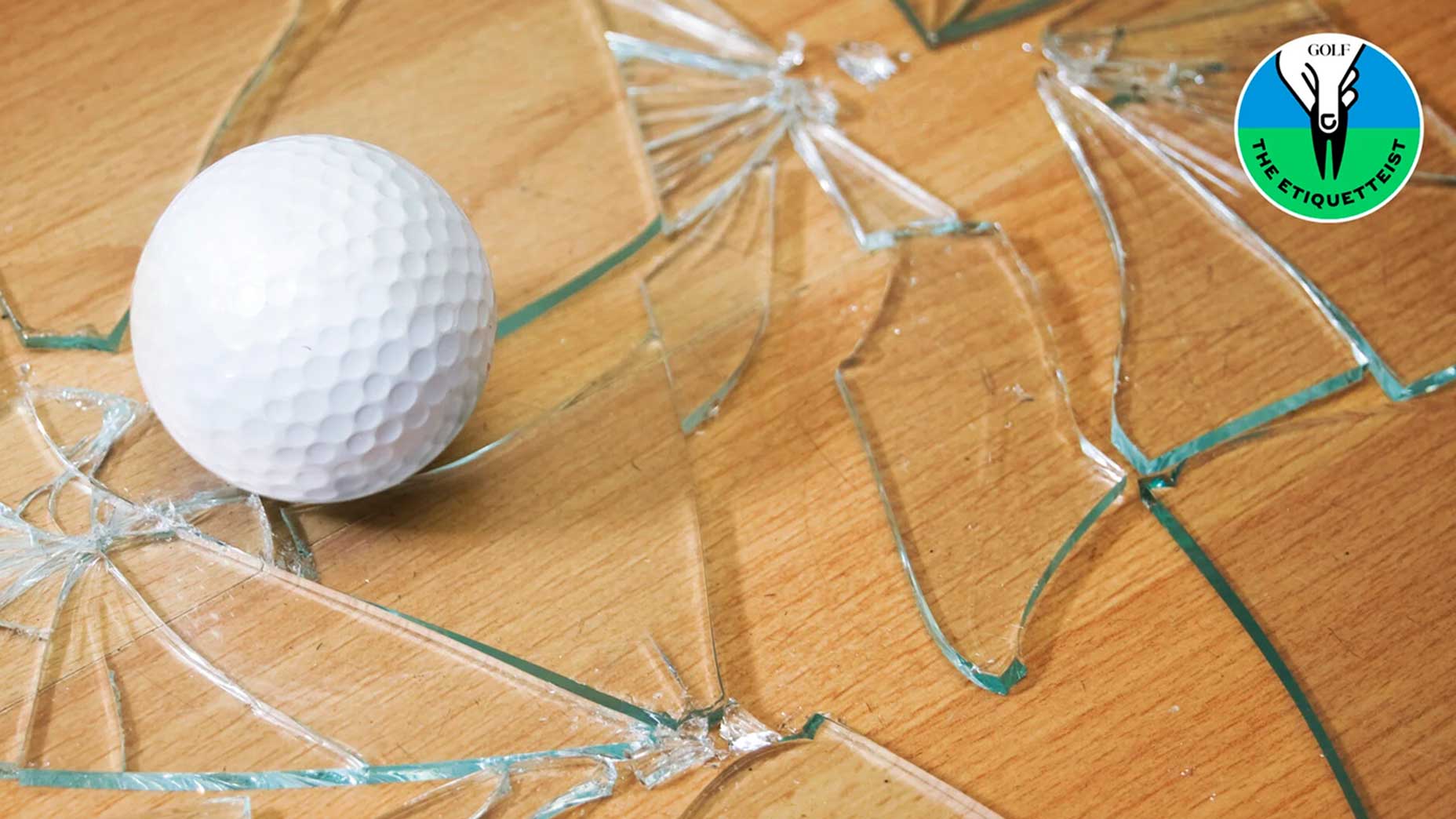Lawrence from San Diego writes: If I hit my patented banana-slice and the shot cracks a window of a neighboring house, am I obliged to leave a note with my contact information, as I would if I nicked another car while parallel parking?
Dear Lawrence:
The Etiquetteist has a friend who describes himself as a “classic guilt-ridden Catholic,” which is to say that he winds up feeling awful about almost everything he does. But hitting a house with a golf shot? That’s where he draws the line.
His reasoning, as you might expect, goes something like this: if you purchase a house on a golf course, buyer beware. You should expect to take some shrapnel and have homeowners’ insurance against any golf-ball damage.
Holding anyone else financially responsible would be ridiculous, like covering your hand in honey, sticking it in a bear’s den and then suing because you got scratched.
And so it is that this guilt-ridden friend, the same painstakingly upright person who feels compelled to utter 45 ‘Hail Marys’ when he inadvertently cuts someone off in traffic, feels zero remorse when he hits a house with an errant shot. He just keeps on moving, unrepentant. He asks no forgiveness. And he leaves no note.
His position, on the face of it, is understandable. But it doesn’t hold up to closer scrutiny.
For starters, there’s the law. While it’s true that many homeowner have policies that guard against golf-ball damage — many courses have such coverage, too — it’s also true that in most cases, golfers are legally responsible for any property damage or injury they cause. At many courses, this liability is spelled out in the small print on the scorecard.
Granted, law and etiquette are not the same. But in this instance, the Etiquetteist would argue that the obligations are. Your reference to a parking mishap is apt because there are, well, parallels to what happens on the road. From an ethical standpoint, sneaking away after breaking a window with your banana ball is no different than denting someone’s car and then driving off without leaving your contact info. Both are hit-and-runs. Sure, the owner of the other vehicle assumed a risk when he left it on the street (there is always the chance of an accident; that’s why they’re called accidents), just as the owner of the course-side home assumed a risk when he bought his residence. But none of that absolves you of your personal responsibility. To quote the great philosopher George Constanza: “We are living in a society.” It’s on you to own up to your actions. Failure to do so, even in ways that may seem vanishingly small, frays the social fabric, leaving us with nothing more than the shredded remnants known as anarchy.
The Etiquetteist is being overly dramatic. But you get the gist: If you damage a house, you should leave a note.
What might happen next is another matter. With any luck, as often happens with minor fender-benders, cooler heads might prevail. The homeowner might thank you for your honesty and tell you not to worry, his insurance will handle it. Or he might ask that you split the cost of the deductible. Or he might insist that you pay for it all.
That last scenario would be a bummer. But it also shouldn’t alter your behavior. The situation is akin to lining up a drive in an attempt to find the fairway, only to hit a big slice instead. You might not like the outcome, but at least you know you’ve tried to do the right thing.
